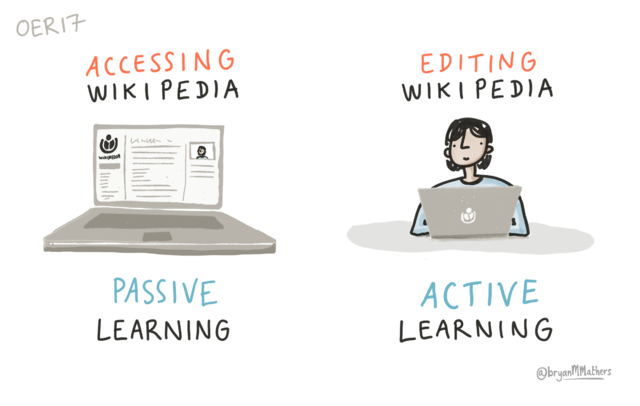e-Learning Ecologies MOOC’s Updates
Active Learning by means of a technology-for-education experiment
At the moment digital learning ecologies have emerged, knowledge relations in terms of traditional education got impacted. The changes are related to the need for teachers to reinvent teaching methodologies and also students to assume a more active posture. Such significant changes reveal the intrinsic nature of students which are configured to be knowledge producers instead of mere consumers only (Cope and Kalantzis, 2017).
At this point, the 21st-century globalized society looks forward to seeing individuals performing smart decision making, for instance, and it can be achieved employing active learning behavior.
Teaching approaches such as Problem-Based Learning (PBL) besides contributing to students' interest, may also develop social impacts (Borovic, 2019) endorsing students to pursue scientific initiatives.
Based on those welcome PBL side-effects, my experience as a computer science and technology teacher led me to propose my high school students to develop a software educational factory in northeastern Brazil.
The project consisted of the development of educational tools to help teachers and other students to obtain better results in terms of comprehension when studying specific topics of disciplines such as Chemistry, Biology, Spanish, History, Geography, Maths, Portuguese and Physics. My goal was to mentoring the students by making them experience practical concepts of software engineering and especially technology as a service (TaaS).
To do so, they were required to interview the respective Portuguese, Chemistry teacher, for instance, aiming to collect the most difficult topics they used to notice their students having a hard time to understand. After that, an ed-tech software should be proposed, designed, and implemented always trying to get the client's (teacher) approval. Most of the tools were quiz-based solutions and students used a high-level of abstraction tool called Scratch in order to implement their solutions. During the mentoring process they kept saying the software engineering and programming concepts were finally better understood.
(Funny fact: they used to say that the process got some doses of adrenaline due to time-to-finish constraint, and the competition some groups developed to deliver more complete and sophisticated solutions).
For me, as a teacher, it was so gratifying to see my students motivated on the project, even the ones that used to be more inattentive. The outcome couldn't be better: my peers (the teacher that acted as the clients) were extremely supportive to the point we invited other public schools from the city to use all the systems developed.
The students responsible for the tools also got impressed on how powerful and reachable their knowledge could become.
From that moment I could then realize what active learning is for: impacting students' way of learning and possibly make them impact others' as well. Besides, some of the projects developed were awarded at national scientific events, and some of the students are currently attending great colleges in Brazil.
Education is a science that requires huge efforts from the individuals involved which include the family environment and support. In terms of active learning, the benefits may range from improving exams score to developing creative and critical capabilities. Although the strategies might vary depending on the school context the outcomes tend to be promising.
References:
Borovic, D., 2019. DEVELOPING SOCIAL INCLUSION AND 21ST CENTURY SKILLS THROUGH PROJECT BASED LEARNING IN THE ERASMUS + PROJECT “WISH”. Journal of Pedagogy - Revista de Pedagogie, LXVII(2), pp.29-46.
Cope, B., and Kalantzis, M. (2017). Conceptualizing e-learning. In B. Cope and M. Kalantzis (Eds), e-Learning Ecologies. New York: Routledge.
[Queen's University website also including strategies for active learning: https://www.queensu.ca/activelearningspaces/active-learning/active-learning-strategies]


